Key Takeaways
1. The universe can arise from nothing, challenging traditional notions of creation
Nothing always produces something, if only for an instant.
Redefining "nothing": In quantum physics, empty space is not truly empty. It's a dynamic environment where particles and antiparticles spontaneously appear and disappear. This challenges the philosophical notion that "out of nothing, nothing comes."
Creation without a creator: The laws of physics allow for the spontaneous creation of matter, energy, and even space-time itself. This doesn't require the intervention of an external force or deity. Instead, it's a natural consequence of quantum mechanics and general relativity.
- Virtual particles can pop into existence from the quantum vacuum
- The total energy of a closed universe can be zero, allowing it to arise spontaneously
- Inflation theory explains how a tiny quantum fluctuation can expand into our observable universe
2. Quantum fluctuations and inflation explain the origin and structure of our universe
Quantum fluctuations, which otherwise would have been completely invisible, get frozen by inflation and emerge afterward as density fluctuations that produce everything we can see!
Cosmic expansion: Inflation theory proposes that the early universe underwent a period of exponential expansion, driven by the energy of empty space. This solves several cosmological puzzles, including the flatness and homogeneity of the observable universe.
Seeds of structure: Quantum fluctuations during inflation became the seeds for all cosmic structure. These microscopic variations in energy density were stretched to cosmic scales, eventually leading to the formation of galaxies, stars, and planets.
- Inflation explains why the universe appears flat and uniform on large scales
- Cosmic microwave background radiation provides evidence for these primordial fluctuations
- The theory connects the quantum world to the large-scale structure of the cosmos
3. Dark energy dominates the universe, accelerating its expansion
We live at a very special time . . . the only time when we can observationally verify that we live at a very special time!
Unexpected discovery: Observations of distant supernovae in the late 1990s revealed that the expansion of the universe is accelerating. This led to the discovery of dark energy, a mysterious force that opposes gravity on cosmic scales.
Cosmic composition: Dark energy makes up about 70% of the energy content of the universe, with dark matter accounting for another 25%. Ordinary matter – the stuff we can see and touch – comprises less than 5% of the cosmos.
- The nature of dark energy remains one of the biggest mysteries in physics
- Its discovery fundamentally changed our understanding of the universe's past and future
- The cosmological constant, proposed and then abandoned by Einstein, may explain dark energy
4. The observable universe will disappear in the far future due to accelerated expansion
Nothingness is heading on a collision course right toward us!
Cosmic horizons: As the universe expands at an accelerating rate, distant galaxies will eventually recede faster than the speed of light relative to us. This will cause them to disappear from our view, leaving our observable universe increasingly empty.
The end of cosmology: In the far future, astronomers will be unable to observe evidence of the Big Bang or the expansion of the universe. The cosmic microwave background will be too faint to detect, and all galaxies outside our local group will have vanished beyond the cosmic horizon.
- In about 2 trillion years, most of the currently observable universe will become unobservable
- Future civilizations may develop a false picture of a static, eternal universe
- This highlights the privileged nature of our current epoch for cosmic discovery
5. Multiple universes may exist, each with different laws of physics
Our universe is rather like a tear buried in a vast multiversal ocean of possibilities.
The multiverse hypothesis: Various theories in modern physics, including string theory and eternal inflation, suggest the existence of multiple universes. Each universe in this "multiverse" could have different fundamental constants and laws of physics.
Implications for fine-tuning: The apparent fine-tuning of our universe for life might be explained by the existence of a vast number of universes. In this scenario, we naturally find ourselves in a universe compatible with our existence, while countless others remain inhospitable.
- String theory suggests a vast "landscape" of possible universes
- Eternal inflation proposes that new universes are constantly being created
- The multiverse concept challenges the idea of a unique, purposefully designed cosmos
6. The anthropic principle suggests our universe's properties are not unique or necessary
If we are all stardust, as I have written, it is also true, if inflation happened, that we all, literally, emerged from quantum nothingness.
Selection effect: The anthropic principle argues that the observed properties of our universe are constrained by the requirements for the existence of observers like ourselves. This doesn't explain why the universe is the way it is, but it does limit the range of properties we might observe.
Environmental science: In a multiverse scenario, many fundamental constants of nature might be environmental accidents rather than necessary features. This shifts the focus from explaining why these constants have their specific values to understanding the probability distribution of different values across the multiverse.
- The fine-tuning of physical constants for life may be an observational selection effect
- This principle doesn't prove the existence of a multiverse but provides a framework for understanding our place within one
- It challenges the notion that the universe was designed specifically for human existence
7. Science, not philosophy or theology, provides the best answers about our existence
The final arbiter of this question will not come from hope, desire, revelation, or pure thought. It will come, if it ever does, from an exploration of nature.
Empirical approach: While philosophical and theological arguments about the nature of existence have persisted for millennia, scientific inquiry has made remarkable progress in understanding the cosmos. This progress is based on observational evidence and testable theories.
Limits of intuition: Our common-sense notions about the nature of reality are often contradicted by scientific discoveries. The quantum world and the nature of space-time challenge our everyday experiences and require us to update our concepts of "something" and "nothing."
- Science has revolutionized our understanding of the universe in just a century
- Philosophical arguments often rely on outdated or incorrect assumptions about nature
- The scientific method continues to push the boundaries of human knowledge
8. The future of the universe may be a return to nothingness
"Why is there something rather than nothing?" will then simply be: "There won't be for long."
Cosmic cycles: Some theories suggest that our universe may eventually return to a state of "nothingness." This could occur through the decay of matter, the dominance of dark energy, or a transition to a different vacuum state.
Temporary existence: The existence of "something" may be a temporary state in a larger cosmic cycle. This challenges the implicit assumption that the current state of the universe is somehow special or permanent.
- Proton decay and the heat death of the universe may lead to a state of maximum entropy
- Some string theory models propose that our universe is unstable and will eventually collapse
- The transient nature of our universe emphasizes the preciousness of our current existence
Last updated:
FAQ
What's "A Universe from Nothing" about?
- Exploration of Cosmology: The book delves into the current state of cosmology, exploring the origins and future of the universe.
- Concept of Nothingness: It examines the idea that the universe could arise from "nothing," challenging traditional philosophical and theological views.
- Scientific Advances: Krauss discusses groundbreaking scientific advances that have reshaped our understanding of the universe's beginnings.
- Interdisciplinary Approach: The book bridges the gap between science and popular culture, making complex ideas accessible to a broader audience.
Why should I read "A Universe from Nothing"?
- Understanding Cosmology: It provides a comprehensive introduction to modern cosmology and the scientific principles that govern the universe.
- Challenging Perspectives: The book challenges traditional notions of creation and existence, offering a scientific perspective on these age-old questions.
- Engaging Writing: Krauss's writing is known for its clarity and wit, making complex scientific concepts engaging and understandable.
- Cultural Relevance: The book addresses the intersection of science, philosophy, and religion, making it relevant to contemporary debates on these topics.
What are the key takeaways of "A Universe from Nothing"?
- Universe from Nothing: The universe can arise from nothing due to the laws of physics, particularly quantum mechanics and general relativity.
- Role of Dark Energy: Dark energy plays a crucial role in the universe's expansion and its eventual fate.
- Flat Universe: Observations suggest that the universe is flat, which has significant implications for its origin and evolution.
- Scientific Inquiry: The book emphasizes the importance of scientific inquiry and evidence-based understanding of the universe.
How does Lawrence Krauss explain the concept of "nothing" in the book?
- Quantum Fluctuations: Krauss explains that quantum fluctuations allow particles to appear and disappear, suggesting that "nothing" is unstable.
- Empty Space: He describes empty space as a dynamic entity with energy, challenging the traditional notion of "nothing."
- Cosmological Constant: The book discusses how the cosmological constant represents energy in empty space, contributing to the universe's expansion.
- Scientific Perspective: Krauss uses scientific principles to redefine "nothing," moving away from philosophical and theological definitions.
What is the significance of dark energy in "A Universe from Nothing"?
- Dominant Force: Dark energy is the dominant force driving the accelerated expansion of the universe.
- Cosmological Constant: It is often associated with the cosmological constant, a concept introduced by Einstein.
- Implications for the Universe: Dark energy's presence suggests that the universe will continue to expand, leading to a cold, dark future.
- Scientific Mystery: Despite its significance, dark energy remains one of the biggest mysteries in cosmology, with its nature and origin still largely unknown.
How does Krauss address the question of "something from nothing"?
- Scientific Explanation: Krauss argues that the universe can arise from nothing due to the laws of physics, particularly quantum mechanics.
- Inflation Theory: The book discusses how inflation theory explains the rapid expansion of the universe from a small, dense state.
- Quantum Mechanics: Quantum fluctuations allow for the spontaneous creation of particles, suggesting that "nothing" is inherently unstable.
- Challenging Traditional Views: Krauss challenges the philosophical and theological notion that creation requires a creator.
What role does the concept of a flat universe play in the book?
- Observational Evidence: Krauss presents evidence that the universe is flat, which has significant implications for its origin and evolution.
- Inflation Theory: A flat universe is consistent with the predictions of inflation theory, which describes the rapid expansion of the early universe.
- Energy Balance: In a flat universe, the total gravitational energy is zero, supporting the idea that the universe could arise from nothing.
- Scientific Consensus: The flatness of the universe is a key piece of evidence supporting the current cosmological model.
What are the best quotes from "A Universe from Nothing" and what do they mean?
- "Forget Jesus, the stars died so you could be born." This quote emphasizes the scientific perspective that our existence is a result of natural processes, not divine intervention.
- "The universe is the way it is, whether we like it or not." Krauss highlights the importance of accepting scientific evidence, even if it challenges our beliefs.
- "Nothing is not nothing. Nothing is something." This quote encapsulates the book's central theme that "nothing" is a dynamic and complex concept in physics.
- "We live at a very special time... the only time when we can observationally verify that we live at a very special time!" Krauss underscores the unique opportunity we have to study the universe's expansion and understand its origins.
How does Krauss use scientific principles to challenge traditional philosophical and theological views?
- Redefining Nothing: Krauss uses quantum mechanics and general relativity to redefine "nothing," moving away from traditional philosophical definitions.
- Evidence-Based Arguments: The book emphasizes the importance of evidence-based understanding, challenging the need for a creator in explaining the universe's origin.
- Scientific Inquiry: Krauss advocates for scientific inquiry as the best method for understanding the universe, rather than relying on philosophical or theological speculation.
- Interdisciplinary Approach: By bridging science and popular culture, Krauss makes complex scientific ideas accessible, encouraging readers to question traditional beliefs.
What is the role of quantum mechanics in "A Universe from Nothing"?
- Quantum Fluctuations: Quantum mechanics allows for the spontaneous creation of particles, suggesting that "nothing" is inherently unstable.
- Virtual Particles: The book discusses how virtual particles can appear and disappear in empty space, challenging traditional notions of "nothing."
- Inflation Theory: Quantum mechanics plays a crucial role in inflation theory, which describes the rapid expansion of the early universe.
- Scientific Explanation: Krauss uses quantum mechanics to provide a scientific explanation for the universe's origin, challenging philosophical and theological views.
How does "A Universe from Nothing" address the future of the universe?
- Dark Energy's Role: The book discusses how dark energy will continue to drive the universe's expansion, leading to a cold, dark future.
- Disappearance of Evidence: Krauss explains that in the distant future, evidence of the Big Bang and the universe's expansion will disappear, making it difficult for future civilizations to understand the universe's origins.
- Bleak Outlook: The book presents a bleak outlook for the universe's future, with galaxies receding beyond the observable horizon and stars eventually burning out.
- Scientific Perspective: Despite the bleak future, Krauss emphasizes the importance of understanding the universe's evolution through scientific inquiry.
What is the significance of the multiverse concept in "A Universe from Nothing"?
- Multiple Universes: The multiverse concept suggests that our universe is one of many, each with different physical laws and constants.
- Anthropic Principle: Krauss discusses how the multiverse concept supports the anthropic principle, which explains why our universe is suitable for life.
- Challenging Uniqueness: The multiverse challenges the idea that our universe is unique, suggesting that its properties may be the result of chance.
- Scientific Exploration: The book explores the multiverse as a scientific concept, encouraging readers to consider the broader implications for our understanding of the universe.
Review Summary
A Universe from Nothing presents fascinating ideas about cosmology and the origins of the universe, explaining how something can arise from nothing. Reviewers praise Krauss's accessible writing style and engaging explanations of complex concepts. Many found the book thought-provoking, though some criticized its anti-religious stance and occasional lack of clarity. Readers appreciated learning about recent scientific discoveries and theories, but some struggled with the more technical aspects. Overall, the book is seen as an informative and intriguing exploration of modern cosmology, despite occasional shortcomings.
Similar Books
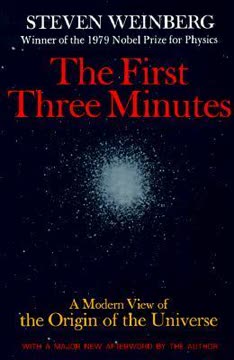
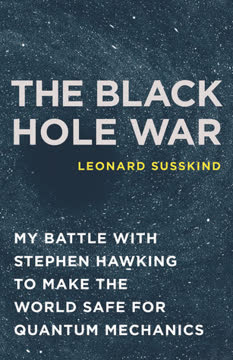
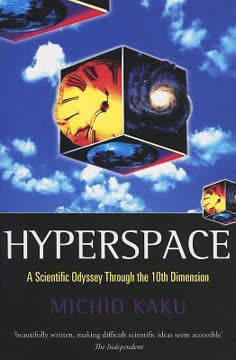
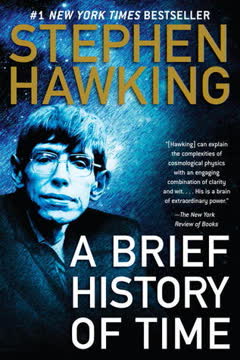

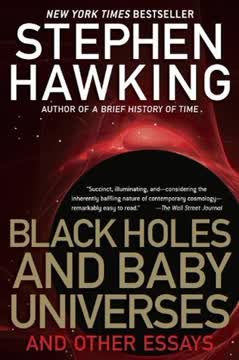
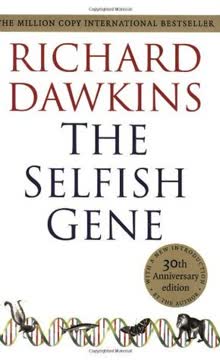
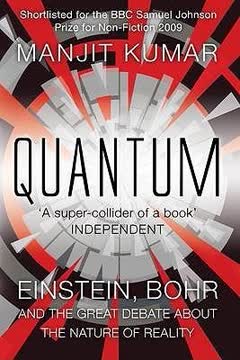
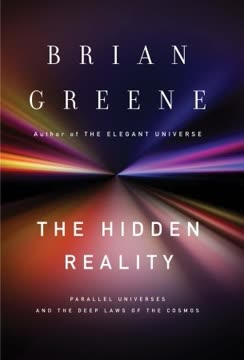
Download PDF
Download EPUB
.epub digital book format is ideal for reading ebooks on phones, tablets, and e-readers.





